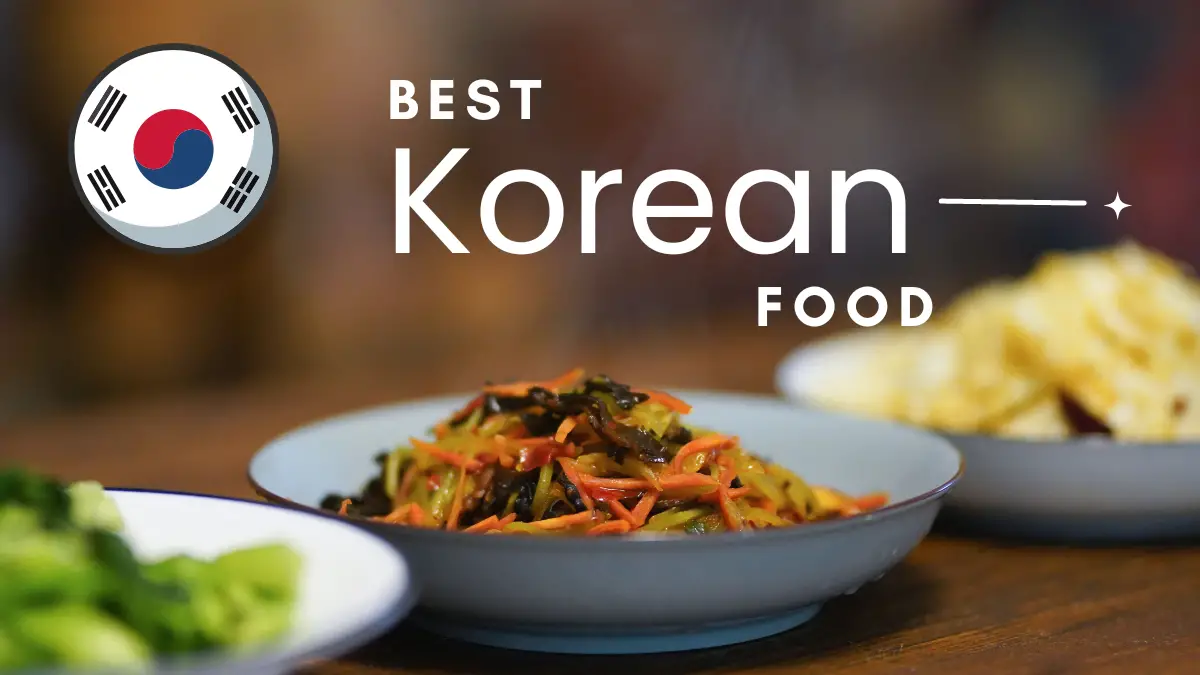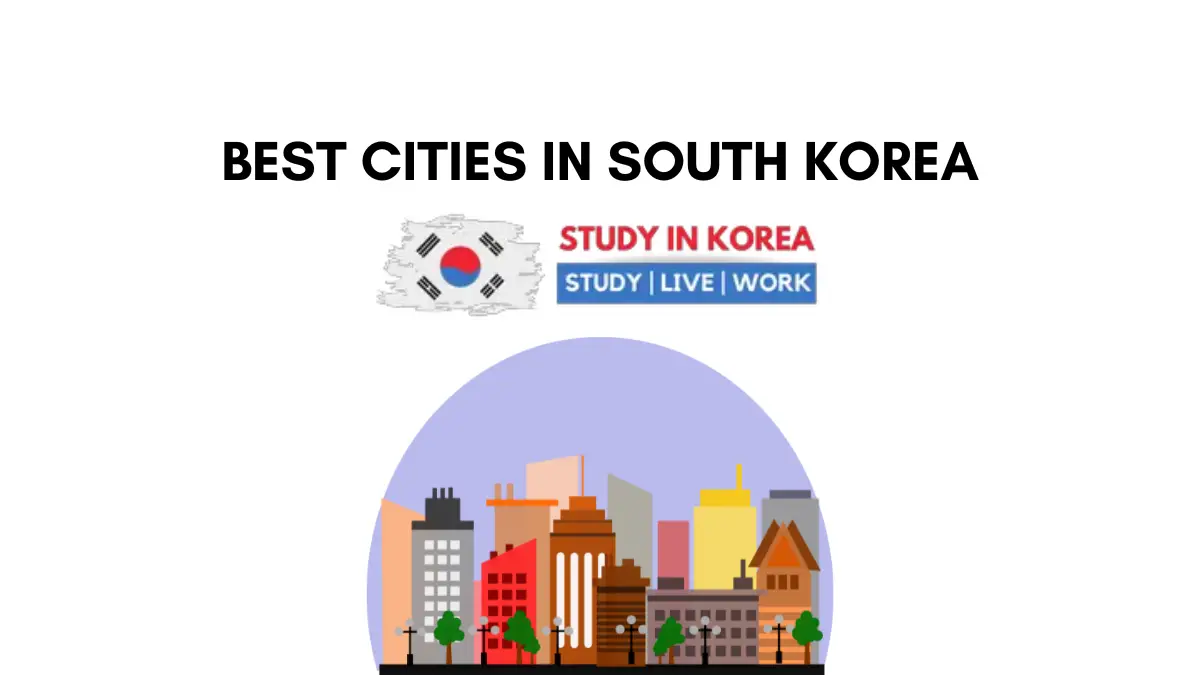
Life of the People in Korea
Are you considering shifting to South Korea? The Valley of the Morning Calm is a beloved site for foreign visitors from all over the world due to its pleasant manner of living, active city environment paired with peaceful surroundings, and affordable living cost. So, it’s very important to know about the Life of the People in Korea.
There are several practical aspects to take into account while relocating to South Korea. For instance, if you send your residential commodities and stuff to the country, you have 6 months from the time of entrance to get your duty-free products. Even individual vehicles fall under this. Anything that is received after the interim six months will be taxed. The life of the People in Korea is magnificent. Every year many international students come to study in Korea. International students are offered fully funded scholarship programs by the Government of Korea.
Practical Information on the Life of the People in Korea
Emergency Numbers
- 119 – fire and medical emergencies
- 112 – police
- 1339 – Korean Help Center for Disease you can information in English, Chinese, Japanese, Vietnamese, and Mongolian languages.
- 1345 – Immigration inquiries
- 1331 – Korean National Human Rights Commission
Check this – Global Korea Scholarships 2023 in Korean best Universities of the world
Public Holidays in the Life of the People in Korea
- 1 January – New Year’s Day or (Sinjeon)
- 1 March – Independence Movement Day
- 5 May – Children’s Day
- April or May** – Buddha’s Birthday or (Bucheonnim Optional)
- 6 June – Memorial Day (Hyeonchung-il)
- 17 July – Constitution Day (Jeheonjeol)
- 15 August – Liberation Day (Gwangbokjeol)
- September or October*** – Harvest Day (Chuseok)
- 3 October – National Foundation Day (Gaecheonjeol)
- 9 October – Hangeul Day (Hangeulnal)
- 25 December – Christmas (Gidoktansinil)
- * The 3-day festival celebrations begin on the 2nd crescent following the wintertime season. The date is adjusted every year according to the lunar calendar.The festival is celebrated on the 8th day of the fourth lunar calendar. The date is adjusted every year according to the lunar calendar
- The three-daylong harvest celebration takes place on the 15th day of the 8th month of the lunar month. The date is adjusted every year according to the lunar calendar.
- A national holiday that comes on a Sunday will culminate per day off for you on the next working day (Monday) after.
Did you read this – Best Korean Food You must Taste in Soul
Main Korean Embassies
Seoul is home to all of South Korea’s international embassies. Some of the most important South Korean international embassies are listed here.
Embassy of Canada in Korea
21, Jeongdong-gil, Jung-gu, Seoul
02-3783-6000
India Embassy in Korea
101, Dokseodang-ro, Yongsan-gu, Seoul
Tel 02-798-4257
British Embassy Seoul
24, Sejong-daero 19-gil, Jung-gu, Seoul
Tel 02-3210-5500
US Embassy in Korea
188 Sejong-daero, Jongno-gu, Seoul
Tel 02-397-4114
You can also check here on how to apply for Korea Tourist Visa
Main Airports
Incheon International Airport, which situates on the coastline west of Seoul, serves as the country’s major airport. It is also regarded as one of the greatest airports around the globe while being one of the busiest. It comprises a spa, a golf resort, casinos, a skating rink, and many more attractions to keep tourists engaged while they wait for or between airlines.
Other airports are:
- Jeju International Airport
- Gimpo International Airport
- Muan International Airport
- Yeosu Airport
Cost of Living in Korea
South Korea has a decent living expense in general. Though it is not as economical as residing in some Asian nations, such as Laos or China, it is also not as pricey as Japan or Singapore. Generally speaking, Seoul, the nation’s capital, will have the highest living expenses. Everywhere else, foreigners can foresee generating a satisfactory salary and setting aside a sizeable portion of it without having to watch their pennies or stick to a strict budget. the expenses of Life of the People in Korea are cheap as compared to other nationalities.
You may interested in – Jeonbuk National University Scholarships for International Students
Is South Korea Expensive to live in?
The greatest housing expenditure in South Korea, like in other nations, will be your residence. Expatriates should be able to spend between 30 and 40 percent of their monthly wage on a decent apartment, even though costs are not exorbitant, particularly in comparison to other well-known foreign locations.
The Cost of Living in South Korea’s Most Expensive and Affordable Cities
The city with the maximum expense of living for foreigners in South Korea is Seoul. This does not, however, imply that living expenses in the capital city are astronomically expensive. Foreigners relocating to the nation have the option of paying more to live in high-rises and colonies that attract ex-pats or they may live outside of the city in more regional communities.
Incheon, Jeju Island, and Busan are the next pricier areas to inhabit in South Korea after Seoul. The estimated monthly expenditure of living is shown for each location below. On a nationwide scale, a family of four might anticipate monthly living costs of 2,300,000 KRW (2,000 USD) (excluding rent). The monthly cost for a single foreigner is 652,000 KRW ($560). (Without rent).
Utility Costs
Utilities won’t drastically boost your rent in South Korea. Please remember that all services, such as fuel, power, and water, are supplied by the state, excluding the internet.
Typically, bills will be costing a little bit more than 100,000 KRW each month (84 USD).
Education system of Korea: The Education System of South Korea is one of the world’s Best Education system
Food Prices
The cost of groceries is quite affordable everywhere. Alcohol is among the costliest products to consume, which can astonish foreigners.
Food Item USD KRW 100 ml of milk 2,500 2.15 1 lb. of chicken breast 4,800 A twelve eggs, 4.10 3,100 2.65″ pounds of tomatoes 3,000 2.60 a pound of apples 3,500 a pound of potatoes for $3 1,900 1.60 Domestic beer, 16 oz. 2,600 2.25 One wine bottle 16,000 14.00
Check these latest opportunities:
How much does a Korean spend on food in his life?
The approximate expenditure of supper for two persons at a modest restaurant is 20,000 KRW (17 USD). A fine dining restaurant dinner can charge about 56,000 KRW (50 USD).
Cost of Education
According to where you reside in South Korea and the sort of institution your children choose to attend; the expenditure on schooling fluctuates. In South Korea, ex-pats are welcome to register in any university or college, including governmental, private, foreign, and religious institutions. The highest expensive choice will be attending an international school. Governmental institutions are free for all learners, including foreign students, but keep in mind that your kids would need to speak Korean to enroll.
Corporate institution tuition has a range of approximately 15,000,000 and 42,000,000 KRW per year (12,600 to 35,300 USD). Approximately 24,000,000 KRW will be spent on overseas universities (20,100 USD). It costs between 250,000 and 500,000 KRW (210 to 430 USD) each month to register your youngster in childcare because it is not mandated in the state. You should be ready to reimburse more as your youngster becomes younger.
The expense of an undergrad course if you migrate there to pursue university varies from 2,000,000 to 5,900,000 KRW. The cost of postgraduate education ranges from 2,500,000 to 7,500,000 KRW. Both KRW sums equal, on average, between 2,100 and 5,900 USD.
Healthcare Costs in the Life of the People in Korea
Amazing public healthcare is provided in South Korea. Everyone has to contribute to the program. Your monthly income will be determined by your gross income. You can expect to contribute around 30% of your monthly wage to the National Health Insurance, on average (NHI). This equates to around 120,000 KRW (100 USD) every month on a nationwide basis. In exchange, the NHI will cover between 50% to 80% of your medical expenses.
If you choose commercial health coverage, the monthly cost will be almost equal to that of the government health insurance program (114,000 KRW) (100 USD).
Travel and Transportation Costs
The expense of travel in South Korea depends on several criteria. Do you have a personal vehicle of your own, such as an automobile or a motorcycle?? Or will you have to rely on public transportation?
One liter of gasoline costs around 1,460 KRW (1.20 USD) or 5,840 KRW per gallon if you’re driving your car (5 USD).
In South Korea, one-way public transportation costs between 17,860-60,000 KRW (15-USD 50) between cities. There will be around 2,300 riders on every journey on city subways (2 USD). Taxis may cost up to 24,000 KRW (20 USD) for a 30-minute journey, with a standard charge of 3,500 KRW (3 USD).
Cultural and Social Etiquette
It’s crucial to understand social and cultural conventions before shifting to a new place. This will facilitate your adjustment to the nation and keep you both from making any serious mistakes that can insult people in your location.
Continue reading to discover certain cultural and social norms you should be aware of if you plan to live in The Land of the Morning Calm.
Taboos Feet role in Life of the People in Korea
Amongst the most critical aspects to understand while migrating to South Korea are the stigmas to dodge. People don’t appreciate the filthy feet. This implies you must refrain from figuring or making gestures with your feet. This involves crouching down in public places. It also considers being quite rude to put your feet up on furnishings, like a chair. Never put your foot down on a bus or subway seat or any other public seat.
You take off your shoes before entering someone’s house and you can usually wear indoor slippers.
Taboos Eating
Contrary to popular belief in other Asian nations, it considers unpleasant to drink or eat while walking. The Life of the People in Korea is more about customs and traditions.
Share this content:





